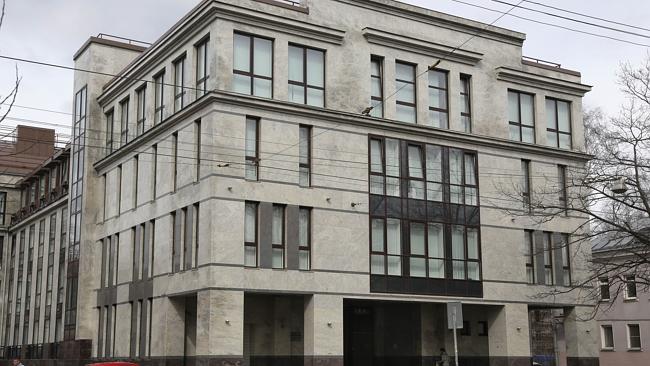Columbia Chemical hoax tracked to “troll farm” dubbed the Internet Research Agency
INSIDE this nondescript building, it’s believed hundreds of employees working 12-hour shifts created a fake emergency that sparked panic on the other side of the world.

AS Americans remembered the attacks on the World Trade Center last year, the internet began to flood with tweets, photographs and videos of what appeared to be another unfolding emergency.
It was September 11 when hundreds of tweets from dozens of accounts included eyewitness details of an explosion at the Columbia Chemicals plant in the US state of Louisiana.
“Are we in danger because of this explosion? What about toxic fallout? What should we do?” one user wrote.
“How far do you think a gas can spread away from #ColumbianChemicals?” Arnold Evans asked.
“How many miles from New Orleans is that damn plant #ColumbianChemicals? Do we have time to evacuate?!” Elizabeth Newton wrote.
On YouTube, CCTV video showed the hint of a flash in the background of a Louisiana petrol station with a timestamp reading 11-09-2014.
A picture was posted of the CNN homepage which featured the chemical plant explosion as its main story.
@SenDonnelly Joe, How far do you think a gas can spread away from #ColumbianChemicals
— Kevin Morgan (@kevin_ck_Mo) September 12, 2014But it was all fake. There was no explosion: it was an elaborate hoax doctored by a team of people employed to create havoc online.
As The New York Times revealed this week, the Columbia Chemicals hoax was eventually traced to Russia and a group called the Internet Research Agency, a known “troll farm”.
Adrian Chen, a reporter who visited the agency and spoke with former employee Lyudmila Savchuk, said the agency employs 400 people who work 12 hour shifts creating fake profiles and posting comments in support of management’s chosen agenda of the day.
The management team is “obsessed with statistics”, according to Ms Savchuk. Page views are counted. Comments are counted. Reach is calculated. The agency’s impact on social discussion is very much a refined science.
The agency is known to push Kremlin propaganda on Facebook, Twitter, Instagram and local social network VKontakte. In March, after Russian opposition leader Boris Nemtsov was murdered, the agency left comments on Russian news outlets suggesting the opposition itself had set up his murder, the Times reported.

But what does it want with America? Why bother setting up a hoax explosion in another country?
It was all an information warfare campaign designed to trick the world — or at least those who weren’t paying a great deal of attention — into believing that America was losing control.
The Columbia Chemicals hoax was followed months later by a staged ebola outbreak in Atlanta and a fake report about a black woman being shot dead by police. Each hoax was tracked back to Russia. Each post was commented on and retweeted by another troll at the IRA.
Russia’s motivation could be found in a document stolen and leaked by hacktivist group Anonymous International that suggested the internet was biased — in favour of America and against Russia.
Ms Savchuk, who first revealed details of the troll farm to a local reporter in February, told The Times the agency had “industrialised the art of trolling”.

Several Russian media outlets say Russian president Vladimir Putin is connected to the agency and that it is funded by a man known as “the Kremlin’s chef”. But tracking down its roots is difficult.
When Chen visited St Petersburg earlier this year, he was told by security that the agency had moved. But it might just be operating under a different name.
Chen, himself, learned that the hard way, after meeting with a former IRA employee for an interview and later being trolled not by the Internet Research Agency but by the Federal News Agency that shared the same building.
After meeting with the employee — a woman who insisted she bring along her brother for protection — a story ran on the FAN website with the headline “What Does a New York Times Journalist Have in Common With a Nazi From St. Petersburg?”

The story detailed Chen’s meeting but failed to mention the former IRA employee. Instead, it focused on her “brother”, who it turned out was a notorious Neo-Nazi named Alexei Maximov.
Chen had been set up. Photographers had snapped him conversing with Maximov and painted him as an enemy of Russia. Maximov even told FAN that Chen requested the meeting because he was “very keenly interested in sentiment among Russian nationalists.”
In true IRA fashion, the trolling even included a YouTube video about the meeting. Different name, same tactics.
Chen said it worked.
“The trolls had done the only thing they knew how to do, but this time they had done it well. They had gotten into my head.”




